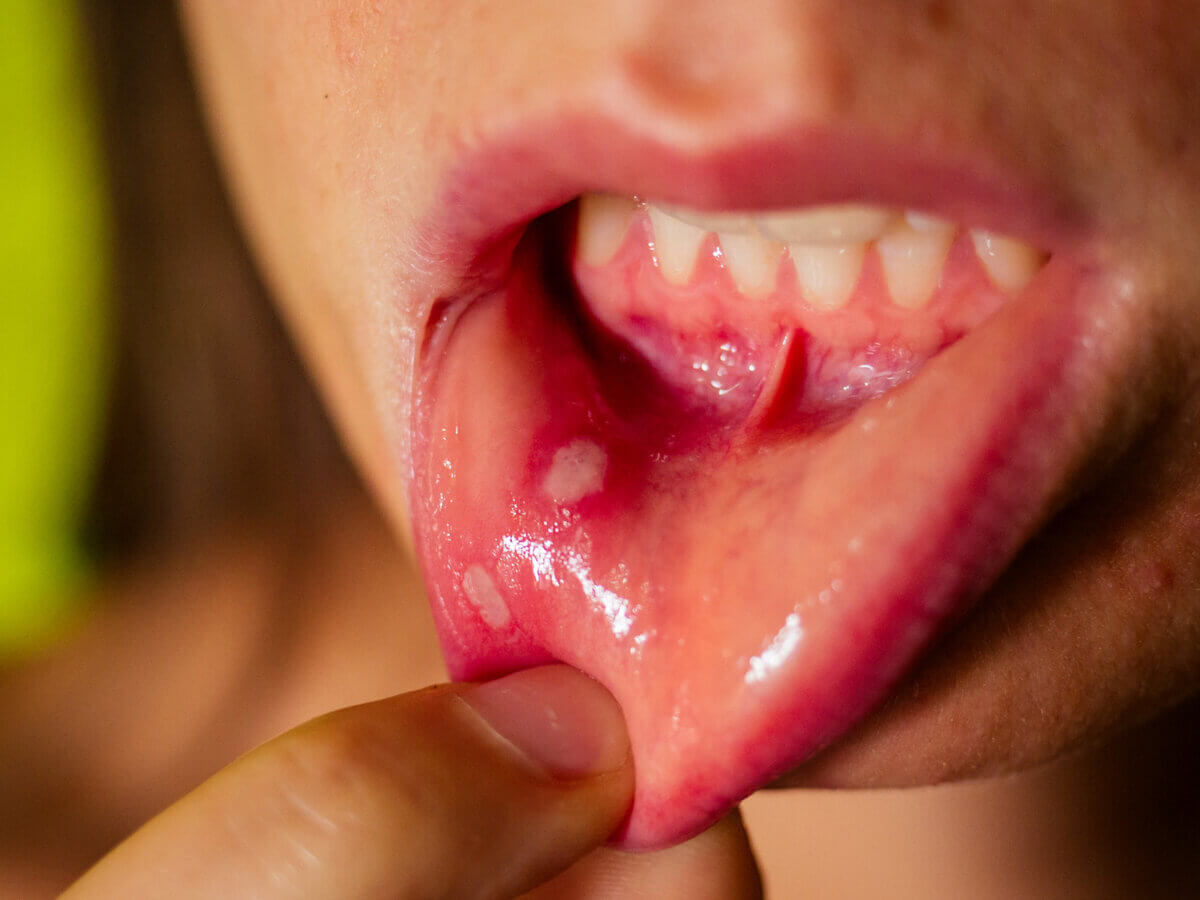Blog
Dental hygiene tips for healthy teeth & gums

What Causes Mouth Ulcers And How to Treat Them
Mouth ulcers, commonly known as canker sores, are painful lesions that form inside the mouth. They can arise from various factors, including allergies, and sensitivities to certain substances, and are typically non-contagious. These ulcers can make eating, drinking, and talking quite uncomfortable. While they often resolve on their own within 1-2 weeks, it’s essential to seek medical advice if an ulcer is unusually large, exceptionally painful, or persists for an extended period.
With appropriate medication and care, mouth ulcers are treatable and manageable. Some ulcers, particularly those associated with hand, foot, and mouth disease, necessitate prompt medical intervention.
Causes of Mouth Ulcers
Mouth ulcers can be triggered by several factors, including a family history of ulcers, pregnancy, dental braces, minor mouth injuries, or the proliferation of oral bacteria. Some individuals have found that toothpaste or mouthwash containing sodium lauryl sulfate (SLS) can instigate ulcers.
While many ulcers aren’t linked to specific underlying causes and may result from poor dietary habits, they usually disappear within a few days. Pain can be alleviated with painkillers, and staying hydrated is crucial. Topical medications and ointments can also help mitigate symptoms.
Other potential causes include medical conditions such as hormonal changes during menstruation, nutrient deficiencies, and stress. It’s worth noting that mouth ulcers can sometimes indicate an underlying health issue.
Symptoms of Mouth Ulcers
Mouth ulcer symptoms can vary but typically include:
- Ulcers that appear yellow, white, or red and are painful.
- Redness and sensitivity surrounding the sores.
- Pain or tingling at the ulcer site.
- Soreness inside the mouth, on the tongue, or cheeks.
- Difficulty in talking, eating, or drinking due to discomfort.
- Mouth Ulcer Treatment
Most mouth ulcers don’t necessitate treatment. However, if you wish to alleviate pain or discomfort, consider the following remedies:
- Apply baking soda to the affected areas.
- Use topical products like Orajel or Anbesol.
- Dab milk of magnesia on the ulcer.
- Rinse the mouth with a mixture of saltwater and baking soda.
- Apply ice cubes or cold water to the sore.
- Place a damp tea bag on the ulcer.
- Take vitamin supplements, such as B9, B12, iron, or zinc.
- Use painkillers as needed.
Prevention of Mouth Ulcers
To minimize the recurrence of mouth ulcers, consider the following preventive measures:
- Manage stress levels.
- Be cautious while eating or drinking to avoid accidental bites.
- Limit foods that irritate the mouth, such as acidic foods, nuts, oily dishes, or those high in sugar. A balanced diet and multivitamin intake can help manage ulcers.
- Maintain good oral hygiene through regular brushing and flossing.
- Use soft-bristled toothbrushes and avoid mouthwashes containing alcohol or sodium lauryl sulfate.
- Consult your dentist about protective measures like wax covers for dental appliances.
- Ensure adequate sleep and hydration.
Final Thoughts
While most mouth ulcers resolve on their own, and the associated discomfort typically subsides within days, they can sometimes indicate a more serious underlying condition. If you experience severe or recurrent mouth ulcers, it’s essential to seek medical attention. Proper medication and care can effectively manage these ulcers.
To prevent future outbreaks, focus on reducing stress and maintaining a balanced diet. Avoiding acidic foods can also expedite the healing process.


